Conferences / Lectures / Talks
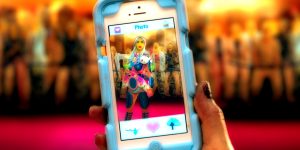
Business Models for Online Contents
Brendon Ciecko (US), Ulvi Kasimov (UK) and Aleksandra Artamonovskaja (CZ/UK), Sabine Seymour (AT) Moderators: Nathalie Pichard (CH), Thierry Baujard (FR)
The panel Business Models for Online Contents will investigate various entrepreneurial endeavors of platform-based access to online content, and how they are monetized. Crowdfunding, licenses or subscription models are only a few of the strategies institutions have to generate revenues in cultural & creative industries, and to secure revenue for artists and content developers.
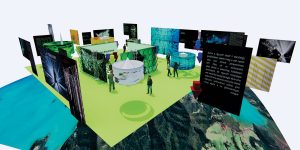
Get.Inspired
Alejandro Martin (ES), Bjorn Lustic (US), Holger Volland (GE), Jens Heithecker (GE), Patrick Tomelitsch (AT), Becky Lees (UK), Cyberballet (DE), Mikael Fock (DK), Sabine Seymour (AT)
This year’s Get Inspired session seeks to cover a vast array of interesting, diverse practices and approaches with a focus on digital and virtual projects, virtual events, platforms and contents. The panel will present examples from events, fairs, tourism, performance venues and museums.
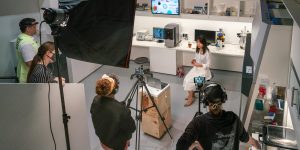
Home Delivery Forum
Home Delivery is a full day conference with a focus on global pandemic responses. Digital platforms, contents and approaches which have evolved from the pandemic crisis – emerging from the network and made manifest through it – will be presented. Nothing seems more important at the moment than to connect and maintain intensive intellectual, artistic and human contact, exchange and dialogue.
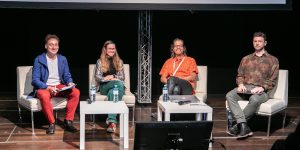
Prix Forum Interactive Art +
What is “+” of Interactive Art in the Age of Uncertainty?
The Prix Forum is a platform for sharing cutting-edge art forms and their role in society through talks and discussions by this year's Prix Ars Electronica winning artists and the jury.
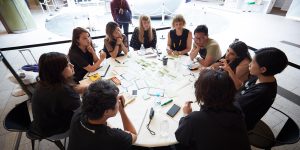
Creative Question Challenge: Ecology – Technology
Alexandra Daisy Ginsberg (UK), Simon Weckert (DE), Kazune Iwasa (JP)
The Creative Question Challenge (CQC) is a new brainstorming format in which speakers explore and present creative questions in a 30-minute dialogue.

Creative Question Challenge: Autonomy – Democracy
Lauren Lee McCarthy (US), Paolo Cirio (IT), Kazuko Tanaka (JP)
The Creative Question Challenge (CQC) is a new brainstorming format in which speakers explore and present creative questions in a 30-minute dialogue.

Creative Question Challenge
The Creative Question Challenge (CQC) is a new brainstorming format in which speakers explore and present creative questions in a 30-minute dialogue. The CQC brings together two speakers from different disciplines and backgrounds, with a facilitator called Catalyst to create questions for the world to ponder within a 30-minute time limit.
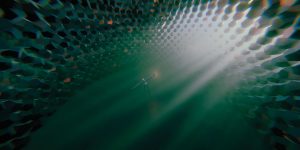
AI x Uncertainty
Jurij Krpan (SL) Speakers: Christl Baur (AT), Suzanne Livingston (UK), Špela Petrič (SL), Stephanie Dinkins (US)
The AIxUncertainty panel focuses on the limitations and uncertainties artists face when developing their work in the frame of AI. What are the challenges for collaboration at the intersection of AI and the arts? What progress can be seen, and where is it failing? What problems do artists face? What frameworks must be created for artists to access their latest research?
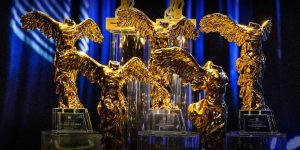
Prix Ars Electronica
at the 2020 Ars Electronica Festival
For over three decades, the Prix Ars Electronica has been one of the world's most coveted awards for digital media art. With the award-winning works of international artists serving as trend barometers, it provides an inspiring, up-to-date and forward-looking insight into the interface between art, technology and society.
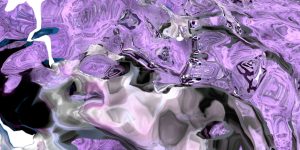
Women in Art, Science and Technology
Marta de Menezes (PT), Dalila Honorato (GR/PT), Ebru Yetiskin (TR), Ionat Zurr (AU), Jo Wei, Kathy High (US), Laura Beloff (FI), María Antonia González Valerio (MX), Victoria Vesna (US)
The panel On Roots and Fruits is a collection of talks from some of the founding members of FEMeeting: Women in Art, Science and Technology on the impact of its conferences and other community activities, and their perspective on the future development of women in art, science and technology. FEMeeting aims to disseminate projects carried out by individuals who identify as women to contribute to (a) the development of research methodologies in art and science and (b) the development of collaboration strategies that can increase knowledge-sharing and bring communities together.

The Women in Media Art: Telematic Performance
Ximena Alarcón (UK/CO), Anat Ben David (UK/IL), Alex Murray-Lesley (ES/NO/AU), Tina Frank (AT), Claudia Schnugg (AT)
This panel will investigate approaches in telematic collaborative art production and telematic art reception through the voices of four artists and researchers experienced in the cutting/edge production of telematic performances and collaborative music production.

Women in Media Arts
Ars Electronica (AT)
In 2016, Ars Electronica launched one of the largest online databases for women in media arts. This database, first dedicated to the women pioneers of Ars Electronica, was then opened to all female artists working with digital means as a tool for artistic expression. A whole program focus was thus established and will be presented this year in two panels.
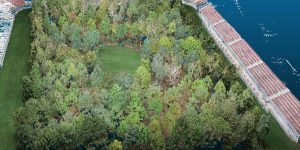
AI x Ecology
Carla Gomes (US/PT), Tega Brain (AU), Mark Coeckelbergh (BE), Lynn Kaack (DE), Stafano Nativi (IT), Claire Monteleoni (US), Martina Mara (AT)
The panel on AIxEcology will focus on the importance of computer-controlled systems for ecology and the environment. Artificial intelligence can be used to save water, stop species loss or detect plants in the field. By optimizing the monitoring of ecosystems, a significant contribution can be made to reduce the risk of climate change and counteract it, as more and more projects try to fight it through data and artificial intelligence.
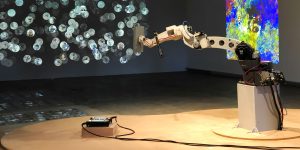
The New Real: Experiental AI and the AI Lab
Jake Elwes (UK), Drew Hemment (UK), Caroline Sinders (US), Anna Ridler (UK), Mahir Yavuz (TR)
The New Real explores the boundary between the real and the artificial as we attempt to emerge into and understand the so-called New Normal. Individual and collective resilience is predicated on the wider use of networked, online tools and environments by the majority of the population in a huge diversity of professional, domestic and leisure settings. At the same time, the crisis is unfolding in a context in which trust in data-driven online content and interaction are being challenged like never before.
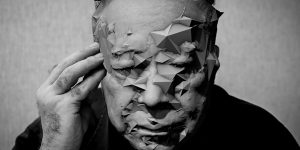
AI x Humanity
Rasha Abdul-Rahim, Adam Harvey (US/DE), Nye Thomson (UK), Milena Marin (RO), Victoria Vesna (US)
A series of panel discussions will be presented as part of the European ARTificial Intelligence Lab this year. Every evening, there will be one panel dedicated to a different topic, aiming to elucidate and educate about the impact of AI on society. The panels will bring AI related scientific, technological and artistic experts together in order to contribute to a critical and reflective debate beyond the technological and economic horizon of artificial intelligence.

Ars Electronica AIxMusic Online Hackathon: Final Presentations
Annelies Termeer (NL) moderator + Participants
For the occasion of the first online Festival, Ars Electronica will host its first international AIxMusic Hackathon as part of the AIxMusic Festival 2020.
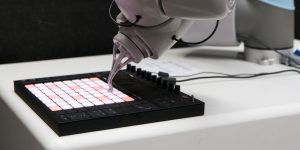
AIxMusic - Artificial Stupidity
Moisés Horta-Valenzuela (MX/US), Artemi-Maria Gioti (GR), Ali Nikrang (AT), Alex Braga (IT) and Portrait XO (US)
The panel on Artificial Stupidity invites artist present at the Ars Electronica Festival to share their experiences in the context of AIxMusic. AI is a media trend right now and a controversial topic.
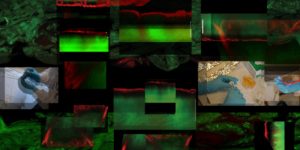
Demystifying Arts and Sciences through Playful Creative Technologies
Jo Berry (UK)
Jo Berry has implemented playful, creative methodologies to seek art's value, purpose and interpretational impact when it takes as its start point advanced imaging and microscopy. Her claim is that art can be a significant contributing factor to new directives in advanced imaging and microscopy; its impact intensified through applying play as a method to interrogate ideas, processes and outcomes. She offers a new model of research, which engages play as the critical driver to accomplish a more agile, accessible and open method of examining science via a different set of criteria. This hypothesis is based on my own prior experience as a researcher working directly with scientists and experiencing scientific method where I became convinced that artists should be central to scientific inquiry not just working on the periphery. As it would seem there needs to be a paradigm shift within science which, she claims, can be activated through examining play through art and identifying its effect on aspects of culture, creativity and aesthetics.
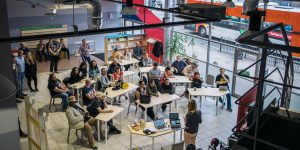
STEAM Fellows in Conversation
Steve Harding (UK)
Meet Dr Steve Harding, coordinator of BCU’s STEAM Fellows Programme, as he talks with Mark Brill (Art, Design, Media), Kusminder Chahal (Business, Law, Social Sciences) and Tychonas Michailidis (Computing, Engineering, Built Environment) about their transdisciplinary projects and how they will help to stimulate engagement across the University.
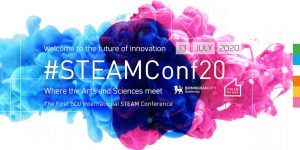
Oh My, What Now?
David Gillette (US)
Dr David Gillette from California Polytechnic State University San Luis Obispo delivers the keynote presentation for First BCU International STEAM Conference on future-focused storytelling, interactive design and sustainable futures. Dr Gillette is founder and Co-Director of the Liberal Arts and Engineering Programme at Cal Poly.


